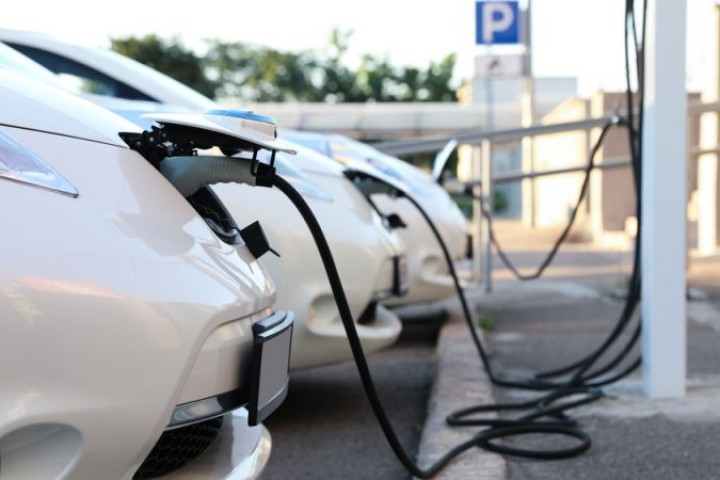EU parliament adopts targets for EV charging infrastructure

The European Parliament adopted on Wednesday (19 October) minimum requirements for charging infrastructure for electric cars, alongside provisions for other forms of mobility, addressing concerns that drivers are unable to charge their electric vehicles (EVs) when going on longer trips.
EU institutions consider electric mobility to be a key technology to reduce carbon emissions in European road transport. But as the share of electric vehicles is supposed to increase, drivers’ concerns about a lack of charging infrastructure have become an obstacle to a further take-up of the technology.
Parliament voted to address those concerns on Wednesday, requiring member states to build EV charging points at least every 60km on main motorways. If the parliament’s position is agreed with other EU institutions, countries would have until 2026 to reach this target.
The new ‘Alternative Fuels Infrastructure Regulation’ (AFIR) was supported by 485 MEPs, with 65 voting against and 80 abstentions. It follows a similar though less binding law from 2014, which was not seen as a success story by key parliamentarians.
“We have lost five to six years,” the Parliament’s chief negotiator on the file, Ismail Ertug of the centre-left S&D group, told a press conference after the vote.
In his view, this was due to the old law being a “directive”, which member states need to include in their national laws before it becomes binding. In contrast, the new law will be a “regulation,” meaning it will apply immediately across all EU countries once adopted.
“I have a famous quote,” Ertug told journalists, “the biggest problem of the EU are its member states, and this is once again proof for it”.
In a written statement published by the European Parliament, he wrote that “at the moment we have 377,000 charging stations in the EU, but this is half the amount that should have been achieved had EU countries lived up to their promises”.
Penalties for non-complying member states
Already next week, Ertug will meet with his counterparts from the Council and the Commission to kick off the so-called trilogue meetings in which EU institutions try to agree on a common position before officially adopting the legislation.
For those negotiations, Ertug had hoped to have an even stronger hand, but could not get a majority of MEPs to support his approach.
“I tried to convince my colleagues on the so-called sanction mechanism that could have been a tool in my hand when going into trilogue,” he told journalists. His proposal would have opened the option to fine EU countries €1,000 for every lacking charging station.
However, this idea failed to reach a majority in the parliament, supported only by Ertug’s own Group of Socialists and Democrats, the Greens, and a few other MEPs.
“The sledgehammer strategy of the Greens and Social Democrats ignores that infrastructure deployment only makes sense if the cost is proportionate to the benefit and if it is based on sound analysis,” Jens Gieseke from the centre-right EPP group said in a statement published after the vote.
Provisions for other means of transport
Apart from obliging member states, the regulation includes provisions for operators of charging stations, requiring them to make payments easier and display the price per kWh, to make prices more comparable.
The regulation also addresses infrastructure for other transport technologies, including fuelling stations for vehicles running on hydrogen, as well as electricity supply for ports and provisions for airports.

